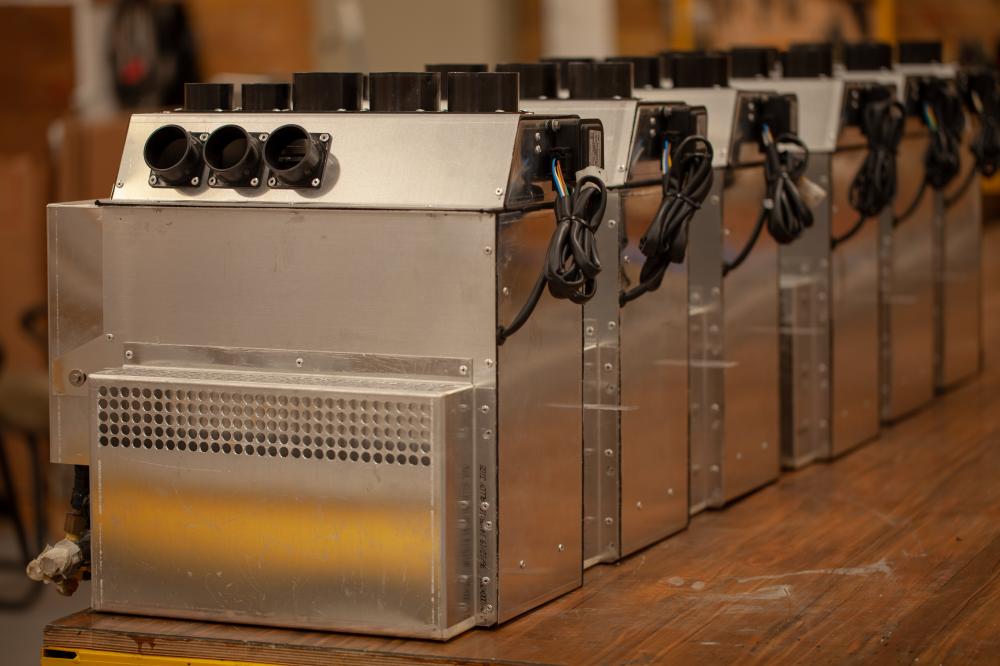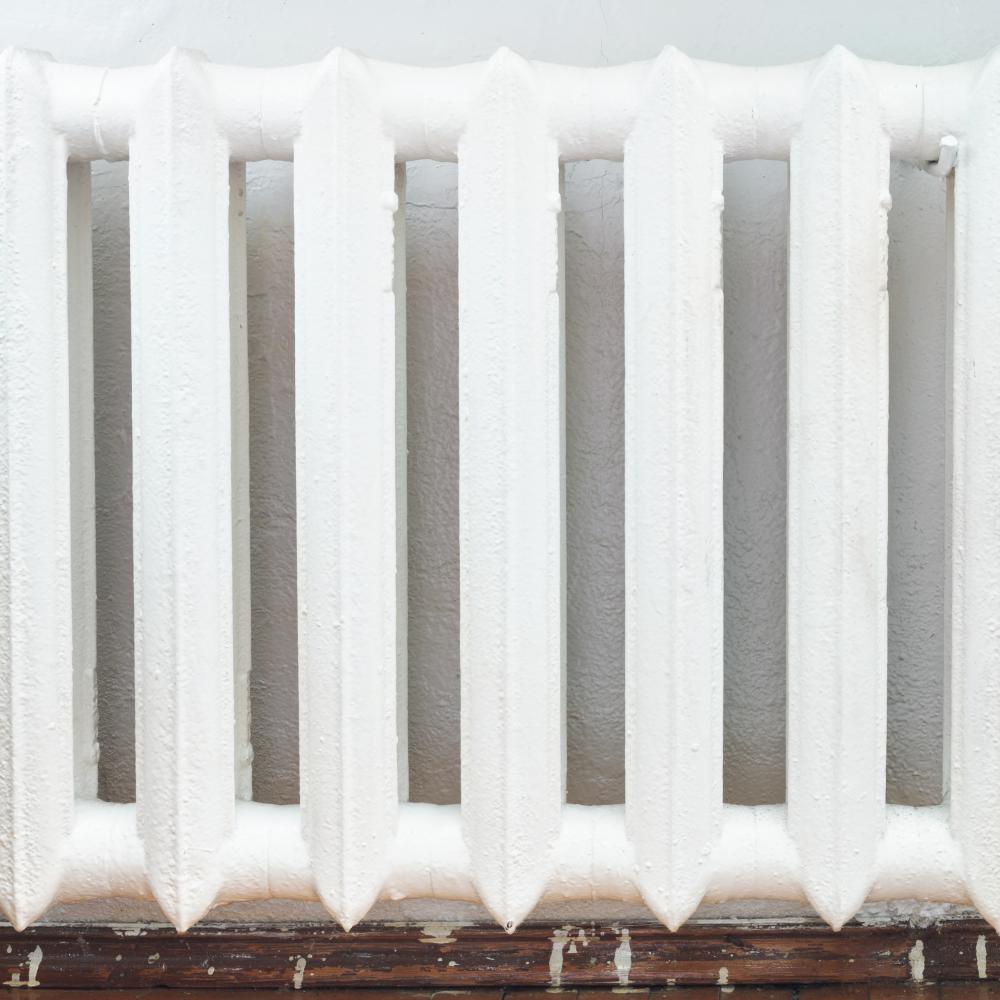
Unit Heaters
At B.I.M.S., Inc., our years of expertise in the HVAC-R industry have taught us the significance of keeping spaces warm and functional, especially during the colder months. Unit heaters, pivotal in achieving this goal, serve as a backbone for many industrial and commercial environments. Designed to provide targeted heating to specific areas, these systems are both versatile and efficient.
Types of Unit Heaters
Diverse Options for Varied Needs
Within our service provisions, we’ve encountered a myriad of unit heaters, each suited to different settings and requirements. From electric and gas-fired models to steam and hot water unit heaters, the selection is broad. Each type has its unique advantages, whether it’s the clean heating offered by electric units or the robust warmth provided by gas-fired options.
Choosing the Right Unit Heater
Deciding on the correct unit heater involves considering the size of the space, the available energy sources, and the desired efficiency levels. Our team frequently consults on these matters, ensuring that clients make informed decisions that align with their heating needs and budget constraints.
Benefits of Unit Heaters
Efficiency and Effectiveness
One of the primary advantages of unit heaters is their ability to heat spaces quickly and efficiently. This is particularly beneficial in large warehouses or workshops where central heating may not sufficiently reach all areas. By deploying unit heaters strategically, you can maintain a comfortable environment without significant energy waste.
Flexibility and Easy Installation
Another key benefit is the flexibility these heaters offer. Many models are designed for minimal installation hassle, which means they can be easily integrated into existing spaces without extensive modifications. This flexibility also extends to the variety of available models, ensuring there’s a perfect match for every need.
Installing Unit Heaters
Installation processes vary significantly based on the type of unit heater being deployed. Electric models, for instance, require proper electrical connections and may demand updates to the existing electrical infrastructure. On the other hand, gas-fired heaters necessitate access to natural gas lines and must adhere to strict safety regulations regarding ventilation and gas handling.
Our experienced technicians, equipped with the necessary knowledge and tools, handle these installations with precision. By conducting thorough assessments before any work begins, we ensure that each installation complies with all relevant standards and regulations, guaranteeing both safety and optimal functionality.
Maintenance Tips
Regular maintenance is crucial to extending the lifespan of unit heaters and maintaining their efficiency. This includes routine checks of filters, fans, and electrical connections. Gas-fired heaters, in particular, require inspections of their burners, heat exchangers, and gas connections to prevent any potential hazards.
Our team offers comprehensive maintenance services, designed to identify and address any issues before they escalate into costly repairs. From seasonal tune-ups to more intricate repairs, our approach aims to keep your heating systems in optimal condition year-round.
Real-Life Applications
In our years of service, we’ve seen unit heaters deployed in a myriad of settings. From keeping greenhouses warm to ensure optimal plant growth to maintaining comfortable temperatures in sprawling warehouse facilities, the applications are nearly limitless. Each project offers a unique set of challenges and requirements, showcasing the adaptability of unit heaters to meet a wide range of heating needs.
One memorable project involved a complex installation in a manufacturing plant where specific areas needed targeted heating solutions to maintain the integrity of the products being manufactured. The precision and expertise required underscored the importance of having a skilled and knowledgeable team handling such installations.
The Future of Unit Heaters
As technology advances, we are witnessing significant improvements in the efficiency and functionality of unit heaters. Innovations in energy use, smarter control systems, and more environmentally friendly options are becoming increasingly common. These developments promise not only to improve the heating capabilities of these units but also to reduce their environmental impact.
Our commitment to staying at the forefront of these advancements ensures that we can offer our clients the most effective, sustainable, and cost-efficient heating solutions. By embracing these new technologies, we can help our clients achieve their heating goals while also contributing to broader environmental objectives.
At B.I.M.S., Inc., our extensive experience and commitment to excellence make us a trusted partner in commercial and industrial HVAC-R services. Unit heaters represent just one aspect of our comprehensive service offerings, but they illustrate the importance of specialized knowledge and experience in delivering effective heating solutions. Whether you’re exploring heating options for a new facility or seeking to upgrade existing systems, our team is here to provide expert guidance and support.
Understanding the critical role of reliable, efficient heating in commercial and industrial settings, we dedicate ourselves to ensuring that our clients’ spaces remain comfortable and productive, regardless of the outside temperatures. For professional assistance with unit heaters and all your HVAC-R needs, reach out to B.I.M.S., Inc. today.

What is a unit heater?
Unit heaters are powerful heating solutions designed to warm specific areas or spaces, particularly in commercial or industrial settings. At B.I.M.S., Inc., we’ve seen firsthand how versatile these systems can be, effectively heating spaces like warehouses, workshops, and even greenhouses. The beauty of unit heaters lies in their ability to deliver targeted warmth precisely where it’s needed, ensuring a comfortable environment without the inefficiencies associated with heating unused areas.
What are the disadvantages of unit heaters?
While unit heaters are invaluable in many contexts, they’re not without their drawbacks. For instance, certain types of unit heaters, like gas-fired models, require proper ventilation to prevent the buildup of harmful gases, which can complicate installation in spaces without existing ductwork. Additionally, although electric unit heaters don’t produce combustion gases, they might lead to higher electricity bills if not used judiciously. It’s these nuances that we, at B.I.M.S., Inc., navigate with our clients, ensuring they’re aware of and prepared for any potential challenges.
Do electric unit heaters need to be vented?
One common misconception about electric unit heaters is the need for ventilation. Unlike their gas-fired counterparts, electric models do not produce combustion gases and therefore do not require the same ventilation for safety. This makes them an attractive option for spaces where installing new ductwork or vents would be impractical or too costly. However, it’s essential to ensure the space has adequate airflow to distribute the heat evenly and maintain comfort levels.
How efficient are unit heaters?
The efficiency of unit heaters can vary significantly depending on the model and the energy source used. Electric unit heaters, for example, can be incredibly efficient, converting nearly all the electricity they use into heat. However, the cost of electricity might offset this efficiency in terms of operating costs. Gas-fired heaters, on the other hand, can heat large spaces more cost-effectively, especially in regions where gas is cheaper than electricity. At B.I.M.S., Inc., we guide our clients through these considerations, helping them choose the most efficient option for their specific needs.
How do I choose the right unit heater for my space?
Choosing the right unit heater involves considering several factors, including the size of the space, the available energy sources, and your specific heating needs. It’s essential to calculate the heating load required to maintain a comfortable temperature, taking into account factors like insulation, ceiling height, and the local climate. At B.I.M.S., Inc., we often find that consulting with a professional can illuminate options you might not have considered, ensuring you choose a heater that fits your space perfectly.
What does the future hold for unit heaters?
The future of unit heaters is exciting, with advancements focusing on improving efficiency, control, and environmental sustainability. Innovations like smart thermostats and more efficient energy use are already making it easier to manage heating in large spaces more effectively and at lower costs. As we move forward, the emphasis on reducing carbon footprints and integrating renewable energy sources will likely shape the development of new unit heater technologies. At B.I.M.S., Inc., staying ahead of these trends allows us to offer our clients cutting-edge heating solutions that meet their needs today and tomorrow.
Unit Heater Resources
- Energy.gov – Unit Heaters: A resource from the U.S. Department of Energy providing information on unit heaters and their functionality.
- Air Conditioning, Heating, and Refrigeration Institute – Unit Heater Information: Information on unit heaters from an industry association dedicated to HVAC-R equipment.
- EPA – Residential Space Heaters: Information from the Environmental Protection Agency on residential space heaters, including unit heaters.
